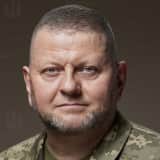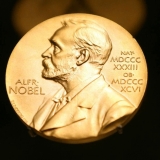Ukraine is an inspiration to the entire free world
Спецпроєкт НАЗК "UKRAINE NOW. Візія майбутнього"
What could Ukraine do to prevent russian aggression? How is this war changing Ukraine and the whole free world? What can we do to guarantee Ukraine’s victory? And finally, on what grounds should the recovery of Ukraine be provided? Those are the questions we discussed during the interview with NACP.
I'm not sure that there's a lot that Ukraine could have done to prevent the aggression because putin was really not well informed about Ukraine. He obviously believed that most Ukrainians wanted to be absorbed by russia, that they would be liberated by an invasion. He believed in this because he wasn't listening to real information coming from real Ukrainians. He only listened to people that agreed with him. It's a typical mistake for an authoritarian leader to make.
I do think that there's a fault on the part of the rest of the world, the United States, and other NATO countries that failed to respond to a whole series of aggressions that russia undertook. Not just the occupation of Crimea and Donbas in 2014 but the occupation of parts of Georgia, their intervention in Syria and Venezuela, and many other places. The rest of the Western World was guilty of ignoring these early aggressions and not thinking that russia was really serious when it got to Ukraine. That's where I think the real fault lies. But I'm not sure Ukraine itself could have done much to deter this attack.
Ukraine’s victory presents a tremendous opportunity to reform Ukrainian institutions from top to bottom. Sociologist Charles Tilley said that ‘war makes the state, and the state makes war.’ Historically it's been a military conflict that has driven the modernization of states because if you have a highly corrupt state where officers are stealing from their men, the material is being siphoned off, you're going to lose the next war. And that actually appears to be exactly what's been going on on the russian side, that we're getting all these reports of russian soldiers not being paid, not being fed because their officers are stealing. But on the other hand, the war has created tremendous incentives for national unity. It's been a big inspiration, I think, to the rest of the world to watch the way that Ukrainians have come together to defend their own sovereignty and their own freedom.
It created this recognition on the part of many Ukrainians that if they steal from the state, they're going to not survive, and their families won't survive the war. So it creates very strong incentives to do the right thing. Hopefully, that experience, that common experience will both strengthen Ukrainian national identity and will also change the nature of Ukrainian institutions once the war is over.
This is really what you call Nation Building, this idea that there's national unity and a kind of national purpose that everybody is pursuing. And I think that may also be one of the war's consequences.
This war was really not just about Ukraine; it was really about the entire democratic order that had been built after 1989 or 1991, when the former soviet union fell apart. That led to a massive expansion in the number of democratic countries, so all of the countries that had been former members of the ‘Warsaw Pact’ were now free to determine their own futures. And many of the republics of the former soviet union became independent nations beginning with Ukraine.
That's really, I think, what putin doesn't like. It's not a military threat from an expanded NATO - it's the fact that all these countries didn't want to be subjects of russia, that they wanted to be independent, sovereign countries that could make their own decisions.
The one thing I don't believe is what's become a kind of conventional wisdom in many circles in the West, which is that the war is stalemated, that neither side can make any gains, and that it's going to be a long war, just like the war in the Donbas after 2014. This is, I think, a very dangerous view because then it means that if people want peace, if they want to reopen the economies of the region, there has to be a peace negotiation based on the current disposition of forces. And I think that would be very disastrous because it means that russia would be left in control of much of the Donbas and then much of the South of Ukraine. And it would be rewarding for them, for this aggression. Still, it also wouldn't solve the underlying causes of the war because russia isn't going to be satisfied holding on to just that part of Ukraine – the moment they rearm and feel stronger, they're going to resume the war. So at best, it would be a temporary truce.
I think that really the most important objective, which, I think, is completely achievable, is actually to liberate the South of Ukraine right now. There's obviously been a big focus on Kherson and the oblast that borders on the Black Sea for economic purposes. It's very important to return those areas to Ukrainian control because you have to be able to export. Fortunately, because of this deal brokered by Turkey and the United Nations, there's now exports going out of Odessa. But frankly, all of those Black Sea ports are really critical to Ukraine's economic future. Therefore the liberation of those Southern oblasts is really the critical issue right now. And I believe that that's something that's achievable by the end of this year.
The only time you can have a serious negotiation with russia is after they have suffered a military defeat and they feel like their position is collapsing. And at that point, you might have a serious negotiation about the future of the relations between these two. But not until that happens.
It's actually been quite remarkable the level of support that Ukraine has gotten up to this point. You wouldn't have expected Germany… I mean, I know that the Germans have been very slow and reluctant, but you know it still constitutes a big change in their foreign policy to support Ukraine with weapons. It could be faster. I think the United States could have delivered the HIMARS systems more rapidly. They could deliver more of them. There are other systems that would be very useful to Ukraine right now. And I hope that the delivery of those weapons will be accelerated; that's the major issue right now.
But a lot of it really does depend on the appearance of momentum in the war because, as I said, the most damaging thing is the belief that we're in a long war. Over the summer, ‘The Economist' had a cover about Ukraine and russia with the title ‘How to win the long war.’ And if people believe that this is going to be a long war that will go on for years, that's not a good situation because, as I said, that's what encourages all of the outside powers to begin pressuring Ukraine to start making concessions. And so I think honestly, what you need is some forward momentum. If Kherson could be liberated in the coming months, that would be a very powerful demonstration of the fact that Ukraine still has a lot of military options.
Ukraine's requirements for recovery will be enormous. And all of the friends of Ukraine on the outside are going to have to step up to do this once there is an end to the war. I think the primary responsibility will fall on the Europeans, and I think that they're probably going to be willing to do a lot in this regard. But we need to pay attention to the political side of the recovery and not just the economic recovery. The economic recovery presents opportunities because Ukraine was very dependent on old 20th century heavy industry steel production, coal, and fertilizer, and all of these big industries that were predominantly in the Eastern part of Ukraine.
Ukraine needed to make a transition anyhow into more of a knowledge economy based on technology. And so there's an economic opportunity to make investments not to recover this old heavy industry, but to really modernize the Ukrainian economy as a whole using the brain power of younger Ukrainians that is really pretty substantial.
It is important to change the nature of Ukrainian politics. I know that there is now this anti-oligarch law that requires people that are classified as oligarchs to put themselves in a special category that allows the state to put limits on them. I think that there's another thing that's quite crucial, which is the reform of the media sector. Because one of the big problems previously, before the war, was the fact that all of the big media channels were controlled by a different oligarch, and they were used to protect that oligarch's interest. And I think that as we get to the end of the war, that's a system that needs to be changed.
Sanctions are actually going to be more effective than people realize. Primarily in terms of technology because a lot of russian industry, including a lot of their military industries, depends actually on Western technology. And you're already seeing this big problem that russia has.
Politically I think that Europe is eventually going to wean itself off of russian energy. But that's obviously something that's politically difficult, and it's going to take time. I think that there are a lot of individual oligarchs that still have not been sanctioned. And they're getting away with a lot. They're able to enjoy life in the West, or their families can. And they continue to support putin.
So there are oligarchs outside of russia that is pro-russian that also could be targeted by western sanctions. And so, I think, there's still a lot of work that needs to be done to go after these individuals and to broaden that list.
I really do think that everything really now depends on the success of the military operations and the flow of outside support. And there are many other forms of support. The Ukrainian economy has suffered really unbelievably over the course of the war. And it's not going to continue without help from the outside in terms of debt forgiveness, support for the balance of payments, all of these sorts of things. And I think that needs to continue as well.
If you're going to rebuild your economy, you're going to require a lot of outside assistance. So the outsiders will impose conditions and will have lots of advice and so forth. But it's fundamentally going to be up to Ukrainians to figure out what the priorities are.
I am in awe of what Ukraine has accomplished this year in terms of stomping russia and mounting this very inspiring defense. I think that your country is an inspiration to the entire free world. I wish that we had the kind of patriotism and commitment in other places that you have demonstrated in Ukraine. So I would say congratulations on that! Keep it up! I do think that you are going to be victorious in the end, and then we can talk about rebuilding the country in a better way.
Francis Fukuyama, American political scientist, and writer, Director of the Ford Dorsey Master's in International Policy at Stanford
Проєкт "UKRAINE NOW. Візія майбутнього" реалізується НАЗК за підтримки Антикорупційної ініціативи ЄС (EUACI) – провідна антикорупційна програма в Україні, що фінансується ЄС, співфінансується і впроваджується Міністерством закордонних справ Данії. Мета проєкту – окреслити бачення розвитку України після перемоги у війні з росією. В інтерв'ю з відомими українськими діячами, мислителями та лідерами думок ми шукаємо відповіді на питання про те, як змінюється держава сьогодні та якою вона має стати завтра.






